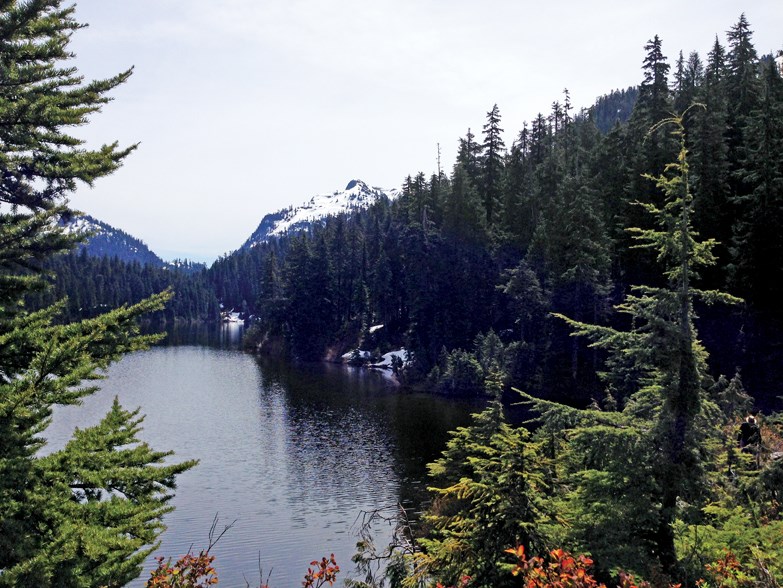The Sunshine Coast Regional District’s Chapman Lake water supply expansion project may not be completed this summer as hoped.
Representatives of AECOM, the engineering consultants hired for the project, were set to appear before a special meeting of the SCRD’s infrastructure services committee on June 9. Documents released as part of the agenda show a site visit involving SCRD officials, BC Parks and the shíshálh Nation was delayed several times because of snow and weather. It finally happened May 31.
The original timeline for the project foresaw getting the necessary approvals from BC Parks for work within the park boundary by the end of April and awarding a construction contract by the end of this week. The work was to be “substantially complete” by Sept. 30.
Now AECOM is saying the BC Parks approval might not come until mid-November, which would mean pushing the substantial completion date to Sept. 30, 2017.
GM of infrastructure Bryan Shoji said if the project is delayed, the SCRD now has all the approvals it needs to draw extra water from the lake through a siphon system.
Earlier this spring, the SCRD said that thanks to a deeper snowpack than last year, and more rainfall, the water level at Chapman Lake is better heading into this summer than it was in 2015. This week, Shoji said that’s still the case.
But fears of a repeat of the 2015 drought can’t be totally dismissed, and that has David Burnett concerned about the salmon runs. Burnett is the executive director of the Sunshine Coast Salmonid Enhancement Society, and chair of the Sport Fishing Advisory Board for the Sunshine Coast and Powell River.
According to Burnett, last summer’s drought had a devastating impact on coho salmon, in part because the SCRD was unable to keep enough water going downstream to meet the Department of Fisheries and Oceans recommended minimum of 300 litres per second.
“The Chapman Creek hatchery has historically recorded 900 to 1,500 coho returns into its hatchery every year; 2015 saw 120 coho returns, which meant broodstock targets could not be met, which resulted in the lowest egg take ever recorded,” Burnett said.
“If the water flow of 300 litres per second that Fisheries and Oceans Canada recommends that the SCRD maintains does not occur for 2016, another generation of coho salmon will be extinguished.”
Shoji said if the SCRD has to activate the siphon system, the rules of its permit require it to make sure water gets downstream for fish.
Burnett is hoping, no mater how water gets downstream this summer, that it’s enough – especially if drought conditions combine with high temperatures as they did last summer.
He also said it could take a long time for the salmon stocks to recover from just one season where water flows were too low.
“It truly is shameful and a travesty that over 20 years of salmon enhancement of Chapman Creek by volunteers of this community has resulted in decimated coho returns, which in the future will impact local and provincial tourism, First Nation food fisheries, commercial fisheries and sport fishing opportunities for all.”
The regional district’s Alternative Approval Process (AAP), on a long-term loan of about $5 million to cover the cost of the project, was scheduled to begin June 10 and wrap up July 19. The SCRD said it does not plan to change the timing, despite the possible delay facing the project.



